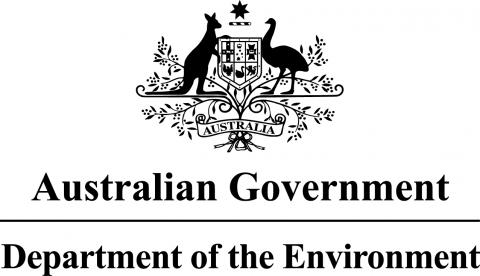Resources
The Conversation
10 May 2013
“How many are there?” and “how are they doing?” are the first questions people usually ask about species of conservation concern. These seemingly straightforward questions are tough to answer when it comes to the dugong.
What we do know is that dugongs are generally safer in remote areas, where traditional hunting is the major pressure, than they are around coastal urban areas where they are affected by habitat loss, gill netting, and vessel-strikes, rather than hunting. Read more
ABC News
11 November 2013
Experts in moths, ants, birds, beetles, snails and plants have converged on Eungella National Park in north Queensland to find out how climate impacts biodiversity.
Together they'll search through tens of thousands of insect species to find a few climate sensitive creepy crawlies to be used as litmus tests in future climate change studies. Read more

The Conversation
18 June 2013
Pesticide levels considered environmentally friendly in Europe and Australia are, in fact, having a devastating effect on invertebrate insect biodiversity in nearby creeks and streams, a new study has found, showing the need for an urgent overhaul of the way pesticide risk is assessed.
Water-dwelling invertebrates like worms, snails, crustaceans, mites and insects play a crucial role in regional ecosystems because they provide food for fish, birds and platypuses. Read more
Science World Report
20 January 2014
It turns out that as our planet warms, extreme weather events are likely to increase. Scientists have discovered that El Niños may double in number as our planet warms, causing scenarios such as the 1983 heatwave that led to the Ash Wednesday bushfires in Australia.
"We currently experience an unusually strong El Niño evnt every 20 years," said Agus Santoso, one of the researchers, in a news release. "Our research shows this will double to one event every 10 years." Read more
ABC Radio National
02 June 2014
In the last year, 18,000 new species were named and identified around the world.
One of them was the Cape Melville leaf-tailed gecko or Saltuarius Eximius.
The gecko was discovered by Dr Conrad Hoskin, a postdoctoral fellow and lecturer, at James Cook University. Read more
ABC News
07 November 2013
Scientists are worried the Great Barrier Reef is on the verge of being hit by the most damaging crown of thorns starfish outbreak on record.
Sections of the reef between Cooktown and Cairns are already in the grip of an outbreak, the fourth recorded since the 1960s. Read more

Courier Mail
20 August 2013
EXPLORE Australia's majestic Great Barrier Reef without getting wet, saying hello to Nemo, Dory and chums via an underwater Google Maps tour.
Scientists are taking the public with them to study the world's coral reefs, thanks to 360 degree panoramas from Google's underwater street-view format. Results from this pioneering project - which will allow ecologists to harness people power to discover how coral reefs are responding to climate change - will be presented at INTECOL, the world's largest international ecology meeting, in London this week. Read more
News Mail
14 November 2013
THE Federal Government has tripled the fine for people convicted of killing protected dugongs and turtles under Commonwealth environment laws.
Environment Minister Greg Hunt on Thursday introduced the bill in the House, which will up penalties for killing, trading or interfering with the protected species. Read more
ABC Rural
05 August 2013
A worldwide look at warming oceans has concluded fish stocks are moving into cooler waters faster than expected.
The CSIRO's Climate Adaptation Flagship has collated 1,700 studied changes, including 222 in Australia, and says the findings have significant repercussions for fishing and other human activities. Read more
ABC Science
04 September 2013
An ancient mystery has been solved through the identification of a group of fossils as the ancestors of our modern-day dugong.
The identification of the 12-million-year-old fossils pushes the record of sirenia or sea cows, the group of marine mammals that includes dugongs, in the region back seven millions years. Read more




